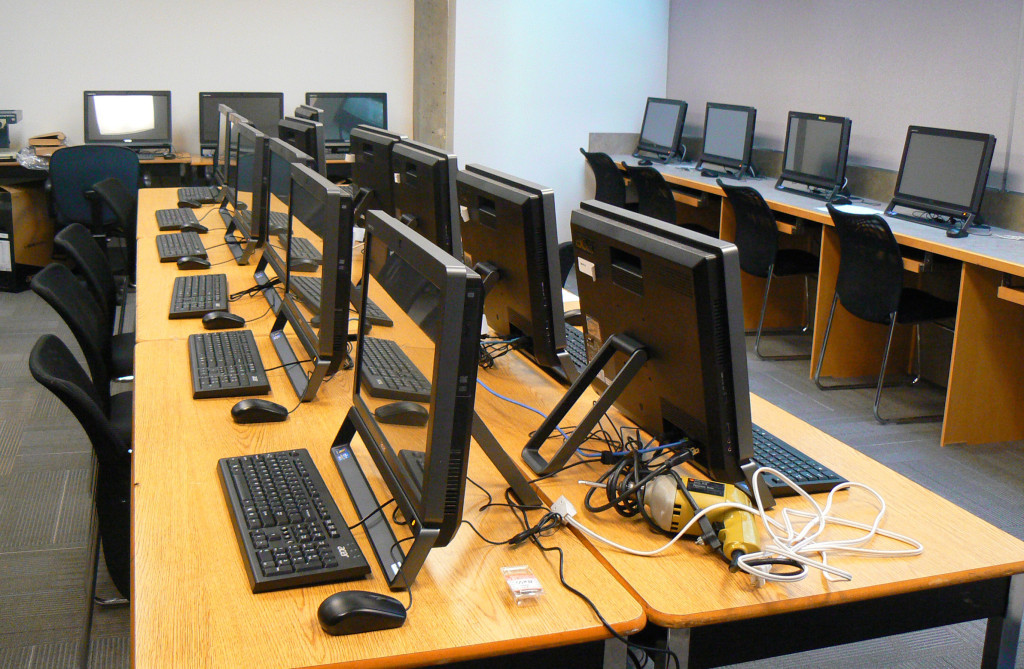
Over one hundred dead after organized attacks occur throughout Paris
By Mercedes Deutscher, News Editor
What started out as a typical Friday night in Paris ended with tragedy when a series of organized attacks were performed throughout the city, resulting in the deaths of 124 civilians and over 300 injured. November 13 saw the worst attacks on France since WWII. These attacks were the second of their nature inflicted on France this year, following the Charlie Hebdo attacks that occurred this past January.
The Attacks
The first of six attacks throughout the French capital started around 9:30 p.m. CET (Central European Time) at Stade de France during an exhibition soccer match between France and Germany. Footage of the match reveals the sounds of two explosions, detonated by suicide bombers outside of the stadium. There was little reaction the first explosion, as many had believed the noise to simply be a firework. The second explosion garnered more attention, although the match continued and France won 2–0. The French president, François Hollande, was in attendance and appeared worried after the second explosion. Hollande was evacuated during halftime. It was later revealed that the two bombings had resulted in four deaths.
A series of attacks began at local eateries, starting at Le Carillon, a café-bar, and Le Petit Cambodge, a restaurant nearby. Conflicting reports suggest that between 11 and 18 people were killed at the establishments.
Another restaurant, La Casa Nostra, fell victim to attack when a man opened fire from the outside with a machine gun while riding by on a scooter. Five were killed.
The final two restaurant attacks took place at La Belle Equipe, where 19 were killed; and Boulevard Voltaire, which saw no deaths but one person severely injured.
Meanwhile, 1,500 people were attending a concert by American band the Eagles of Death Metal at the Bataclan Theatre. Four men were reported to have calmly entered the building, and they proceeded to open fire into the crowd. Most of those in attendance, including the band playing, escaped relatively unharmed. Approximately 100 were held hostage by the attackers. Shortly after midnight, police attempted to enter the theatre as they believed that the perpetrators had begun to kill the hostages, which lead the attackers to throw grenades into the crowd and detonate their suicide bombs. A total of 87 people were killed at the theatre.
The Perpatrators
The attacks were conducted by at least eight trained men, most of whom have been accounted for as of this printing.
ISIS, the radical Islamic terrorist group that has laid siege to countries throughout the Middle East and murdering captives for years, confirmed on November 14 that they are responsible for the attacks, and claimed that these attacks were only the beginning of a series.
French Response
After being evacuated from the soccer match, Hollande addressed his country at 11:02 p.m. Hollande placed the entire country in a state of emergency and temporarily closed the border, ensuring that no one could leave or enter France.
The city of Paris was placed under a curfew and all residents were urged to get themselves indoors. From there, 1,500 French soldiers were deployed into the city to help create order.
Hollande also announced that he would be cancelling his appearance at the G20 summit in Turkey, which he was to attend on November 15. Finally, he decided that France would take three days of mourning.
Several businesses and institutions remained closed on the day following the attacks. Uber suspended its service. Both the Eiffel Tower and Disneyland Paris closed their gates.
During the attacks, Parisians took to social media with the hashtag #PorteOuverte, meaning open door. The hashtag was a sign of a helping hand, made by those offering refuge to those who were stranded in the city or who had no means of getting home.
Facebook offered a safety feature that allowed those in Paris to check in as safe, which helped reassure the heavy hearts and minds of many.
International Response
US President Barack Obama was among the first to make a statement on the attacks. In a televised address, Obama offered condolences and support to “America’s oldest ally.”
“Obviously, those of us here in the United States know what it’s like. We have gone through these kinds of episodes ourselves,” explained Obama. “And whenever these kinds of attacks happened, we’ve always been able to count on the French people to stand with us. They have been an extraordinary counter-terrorism partner. And we intend to be there with them in that same fashion.”
Prime Minister Justin Trudeau was getting ready to embark to Turkey for the G20 summit when news of the attacks broke. Prior to departing, Trudeau made the following statement from the Ottawa airport at an impromptu news conference:
“We have offered all of our help and support to the government of France, to the people of France at this time. And we’ll continue to engage with our allies around the world in ensuring the safety of Canadians and others both here at home and around the world.”
Leaders from all of the opposition parties also had kind words of support.
People from around the world have offered their support and condolences to the people of France, particularly on social media, with the use of the hashtag #PrayForParis and a new Facebook filter resembling the French flag.

